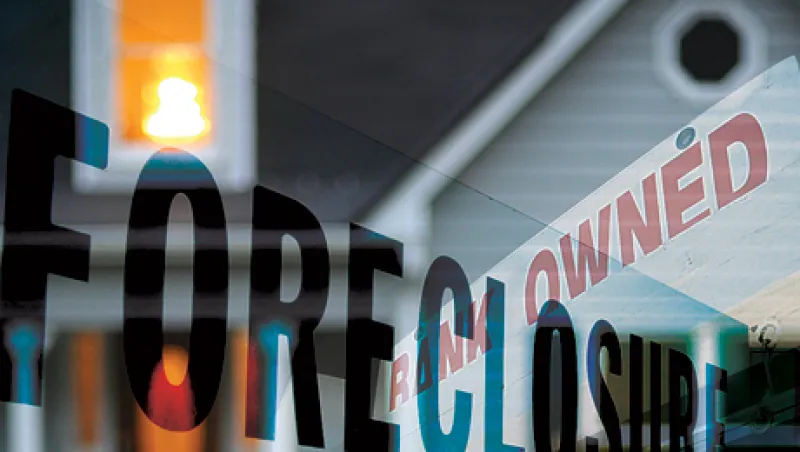Last year real estate investment firm Colony Capital looked at the battered U.S. housing market and saw a big opportunity. Prices had plunged more than 30 percent in some regions between 2006 and 2011, helping erase $7 trillion in value nationwide. Banks and government-sponsored agencies sought to unload millions of repossessed homes, and as many as 8 million former homeowners needed houses to rent.
So the Santa Monica, California–based firm launched Colony American Homes, a private real estate investment trust that could soon become one of the first public REITs dedicated to single-family homes. Colony has plenty of experience: To date, it’s invested $48 billion in some 16,000 properties across the globe.
Under acting CEO Justin Chang, Colony American Homes settled on a strategy: Scour trustee sales for bargains, seeking geographic diversity to spread risk, and buy homes in markets that suffered steep price declines but will see long-term job and population growth. So far, the Colony REIT has mostly favored Sun Belt cities such as Atlanta, Las Vegas and Phoenix. As of late August it had snagged 3,000 properties and closed $525 million in institutional commitments in advance of a planned initial public offering next year. By then the REIT should have deployed at least $1.5 billion for 15,000 to 20,000 homes in a dozen states, Chang says.
The REIT plans to hold and rent these properties for at least five years, overlapping a projected recovery for the U.S. housing market. Price appreciation should peak at between 4 and 5 percent nationally between 2014 and 2015 before settling at annual growth of 3.5 to 4 percent, says Celia Chen, a senior director at Moody’s Analytics in West Chester, Pennsylvania.
Renters will help drive the housing recovery, predicts the Demand Institute, a New York–based division of business membership and research nonprofit the Conference Board. As they plot private and public REITs, investment firms seem to agree. For example, New York private equity shop KKR & Co. is backing Atlanta-based Beazer Homes on a REIT for existing houses. Initially focused on Las Vegas and Phoenix, the Beazer REIT has raised at least $85 million and will look to go public at $150 million. “Some REITs have dabbled in only a limited amount of for-sale single-family or condo development due to rules that restrict the percentage of nonrent revenue that a REIT can earn,” says Steven Marks, head of U.S. REITs at Fitch Ratings in New York. Rental income isn’t subject to these limits.
Single-family REITs and public markets look like a good match. Retail investors want yield above U.S. Treasuries, which are trading at all-time lows. Colony’s private REIT has posted early returns of 6 to 7 percent, says Chang, who reckons that with appreciation and modest leverage, earnings will be in the mid- to high teens. The single-family sector could attract hundreds of billions of dollars, Colony maintains. “We don’t think the private market can meet that by itself,” Chang says. “Public capital will be a big part of this.”
Chang compares today’s situation to the savings and loan crisis of the early 1990s, when REITs bought up assets in the commercial and multifamily sectors. Fitch’s Marks is skeptical. “At the time of the S&L scandal, insurance lenders actively provided debt to the commercial real estate sector given their comfort with, and the good long-term performance of, the underlying asset class,” he says.
There’s also the question of efficiency. Multifamily REITs own similar units under one roof. “But for a single-family home, each dwelling has its own unique roof and four walls,” Marks notes. “The dishwasher and washer-dryer are different in each house, whereas they are usually the same in apartment building units, which enables owners to operate more efficiently.”
Just ask William “Billy” Procida. His Englewood Cliffs, New Jersey–based Procida Funding & Advisors has invested at least $20 million in a fix-and-flip program for homes within a 100-mile radius of the firm’s office. It’s yielded unlevered returns of 18 percent since 2011, but Procida is more focused on a commercial venture. Housing isn’t a commodity, he argues. “It’s hard enough to do a 1,000-unit condo,” Procida says. “Now do it over 1,000 miles,” he adds, pointing to the need for rental, maintenance and financial specialists in local markets.
Colony has that covered. Alongside its REIT, Colony American Homes launched a national management company based in Scottsdale, Arizona, with staff in states where it owns homes. “We concluded that we had to go soup-to-nuts, owning and investing,” Chang says, “to drive operating efficiency, all under one integrated roof.”






